
مرحباً بكم في مجلة جامعة العلوم الإسلامية للعلوم التطبيقية (IUJAS) - (مجلة ذات وصول مفتوح)
Print ISSN: 1658-7936 & Online ISSN 7944-1658
أرقام المجلة
أبحاث
إصدارات المجلة
عضو
مجلة العلوم التطبيقية هي مجلة ذات وصول مفتوح مجاني (بدون رسوم نشر أو رسوم تقديم للمقالات).
مجلة الجامعة الإسلامية للعلوم التطبيقية (IUJAS) هي منشور دولي محكم، مفتوح الوصول، ينشر مقالات علمية عبر الإنترنت والطباعة. تهدف IUJAS إلى دعوة المؤلفين من جميع أنحاء العالم وتوفير منصة نشر مناسبة للقرن الحادي والعشرين. تسعى IUJAS إلى نقل المعرفة المتطورة إلى المهندسين والعلماء والباحثين والأكاديميين الذين يهتمون بالتطورات الناشئة في جميع جوانب الهندسة والعلوم والحوسبة مع التركيز على الخوارزميات، والهندسة المعمارية، ومنهجيات التصميم، والعمليات، والاختبار، والأدوات، والتقنيات، والمجالات ذات الصلة بالبحث.
لا توجد رسوم نشر في مجلة الجامعة الإسلامية للعلوم التطبيقية.
مجلة الجامعة
الإسلامية للعلوم التطبيقية (IUJAS)
هي مجلة بحثية متعددة التخصصات عالية الجودة مفتوحة المصدر ومحكمة من قبل الأقران
بدون رسوم نشر. توفر IUJAS
منصة للباحثين والأكاديميين والمهنيين والممارسين والطلاب لنقل وتبادل المعرفة في
شكل أوراق بحثية تجريبية ونظرية عالية الجودة ودراسات حالة ومراجعات أدبية
ومراجعات كتب. نود أن ندعوك للمساهمة بورقة بحثية للنشر في IUJAS. تغطي المجلة متعددة
التخصصات جميع مجالات علوم الكمبيوتر وتكنولوجيا المعلومات وجميع تخصصات الهندسة
والعلوم الأساسية وجميع مجالات العلوم التطبيقية الأخرى. تنشر المجلة مقالات بحثية
أصلية ومقالات مراجعة وملاحظات فنية.
ستخضع جميع
المقالات لمراجعة الأقران بشكل أعمى. يجب ألا تتجاوز الأوراق المقدمة 20 صفحة ولا
تقل عن 8 صفحات. مجلة الجامعة الإسلامية للعلوم التطبيقية (IUJAS)، التي تنشرها الجامعة
الإسلامية بالمدينة المنورة، تسعى إلى أن تكون بمثابة منصة للأكاديميين والباحثين
والعلماء والممارسين لتبادل الأفكار المبتكرة ومشاركة الخبرات لسد الفجوة بين
نظرية الهندسة والعلوم والحوسبة وتطبيقها لحل أحدث المشاكل والتحديات التي تواجهها
منظمات القرن الحادي والعشرين.
مجلة
الجامعة الإسلامية للعلوم التطبيقية (IUJAS) هي مجلة علمية متاحة بالكامل بنظام
الوصول المفتوح. جميع المقالات المنشورة فيها متاحة مجانًا وبشكل دائم على
الإنترنت فور نشرها.
لا
تفرض المجلة أي رسوم على تقديم الأبحاث أو على معالجة المقالات (APCs)، والنشر في
المجلة مجاني تمامًا للمؤلفين.
سياسة
الوصول المفتوح والترخيص:
حرصًا على تحقيق أوسع انتشار ممكن
للأبحاث وضمان إمكانية إعادة استخدامها، تنشر مجلة
IUJAS جميع المقالات تحت ترخيص المشاع
الإبداعي (Creative Commons
Attribution - CC BY 4.0).
شروط
الترخيص (CC BY 4.0):
- النسب (BY): يحق
للمستخدمين نسخ العمل أو توزيعه أو عرضه أو أداؤه أو تعديله بأي وسيلة أو
صيغة، بما في ذلك للأغراض التجارية، بشرط ذكر المصدر والمؤلف الأصلي بشكل
مناسب.
- يتيح
هذا الترخيص أقصى درجات الاستفادة من الأبحاث وتأثيرها العلمي، من خلال
السماح للآخرين بالبناء عليها قانونيًا مع الحفاظ على الإشارة إلى المساهمة
الأصلية.
تراخيص
المشاع الإبداعي الأخرى (للمرجع):
CC BY-NC (النسب – غير تجاري): - يسمح بإعادة التوزيع وإعادة
المزج والتعديل لأغراض غير تجارية فقط، مع الإسناد الصحيح للمصدر.
CC BY-NC-ND (النسب – غير تجاري – بدون
اشتقاق): - يسمح بتنزيل
ومشاركة العمل مع الإشارة إلى المصدر، ولكن لا يسمح بالتعديل أو الاستخدام التجاري.
بيان الترخيص في مجلة IUJAS:
جميع المحتويات المنشورة في مجلة IUJAS مرخصة بموجب
ترخيص المشاع الإبداعي نَسْب المصنف 4.0 الدولي
(CC BY 4.0)، والذي يتيح الاستخدام
والتوزيع وإعادة النشر بحرية تامة في أي وسيلة، بشرط ذكر المؤلفين الأصليين
والمصدر بشكل مناسب.
يمكن الاطلاع على نص الترخيص الكامل
والرموز القانونية الخاصة بهذه التراخيص الأربع وغيرها من التراخيص الأقل شيوعًا
عبر الرابط المخصص لذلك. here
نموذج تقييم المقالة
IUJAS: نموذج تقييم المقالة
العنوان:
1 = غير كافٍ / غير هام،
2 = ضعيف، 3 = مقبول، 4 = جيد، 5 = ممتاز
الخصائص 1 2 3 4 5
1 الأصالة
2 العنوان والكلمات المفتاحية ذات صلة
بالمحتوى
3 المحتويات التقنية والنظرية مناسبة (هل
المشكلة أو قضية البحث مهمة؟)
4 تم توضيح علاقة المشكلة بالأبحاث السابقة
5 جودة العرض (المقالة مكتوبة بوضوح ومنظمة
منطقياً)
6 النظرية والمنهجية مناسبة
7 التجربة، جمع البيانات، أخذ العينات
مناسبة، وتحليل البيانات علمي
8 النتائج والتحليل مقدمة بوضوح
9 الاستنتاجات مذكورة بوضوح
10 المراجع مناسبة، حديثة، ذات صلة ومقتبسة
بشكل صحيح في المقالة
11 التقييم العام للمقالة
12 التوصيات:
• قبول المخطوطة كما هي
• تتطلب مراجعات
• تتطلب مراجعات رئيسية وإعادة هيكلة
المخطوطة
• رفض المخطوطة
13 مطلوب: تعليقات للمؤلف. (أرفق أوراقًا
إضافية / مساحات إذا لزم الأمر)
14 مطلوب: بيان ما كان أصلياً في هذه المقالة.
(أرفق أوراقًا إضافية / مساحات إذا لزم الأمر)
تقديم مقالتك
القواعد العامة
يجب أن تفي معايير نشر الأبحاث العلمية بما
يلي:
تقرير عن بحث علمي أصلي (يجب ألا تكون
النتائج والاستنتاجات الرئيسية قد نشرت أو قدمت في مكان آخر).
تناسب مواضيع المجلة.
تقرير عن نتائج جديدة، عمل مبتكر ويظهر
مساهمة علمية جديدة.
ألا يكون لديها تشابه يزيد عن 25% من عمل
منشور سابق لنفس المؤلفين.
اتباع القواعد واللوائح ومنهجيات البحث
الموثوقة.
استيفاء العناصر المطلوبة وتنسيق المجلة
الموضح في الملحق أدناه المتعلق بدليل المؤلف.
الآراء المعبر عنها في المقالات المنشورة
تلزم المؤلفين أنفسهم فقط وليست بالضرورة رأي المجلة.
بالنسبة لجميع المقالات
لنشر وتوزيع الأبحاث، يجب على المؤلفين نقل
حقوق النشر إلى الناشر كجزء من اتفاقية نشر المجلة. يمنح IU الحقوق التالية:
الحق الحصري في نشر وتوزيع المقالة، ومنح
الحقوق للآخرين، بما في ذلك الأغراض التجارية.
بالنسبة للمقالات المفتوحة الوصول، سيطبق IU ترخيص المستخدم من الطرف الثالث المناسب عند نشر المقالة على منصاته
الإلكترونية.
الحق في توفير المقالة بجميع الأشكال
والوسائط بحيث يمكن استخدامها على أحدث التقنيات حتى بعد النشر.
السلطة لإنفاذ الحقوق في المقالة، نيابة عن
المؤلف، ضد الأطراف الثالثة، على سبيل المثال في حالة الانتحال أو انتهاك حقوق
النشر.
يحتفظ المؤلفون بالحق في:
مشاركة مقالتهم لأغراض الاستخدام الشخصي،
والاستخدام الداخلي المؤسسي والمشاركة العلمية.
الحصول على نسخة ورقية مجانية.
دليل المؤلف
يجب أن تحتوي المقالات المقدمة على العناصر
التالية:
العنوان
أسماء المؤلفين مع الانتماء والعنوان
الإلكتروني
الكلمات المفتاحية
المقدمة
المواد والأساليب
النتائج
الاستنتاجات
المراجع
الرسوم التوضيحية، الجداول والأشكال مع
التسميات التوضيحية.
الملحقات
ملاحظة: بالنسبة لغير الناطقين باللغة
العربية، ستوفر المجلة ترجمة لملخصات المقالات المقبولة. هذه الخدمة مجانية.
يجب أن تتبع الورقة التنسيق المحدد في
القالب (تتوفر قوالب لكل من LaTeX وMS-Word - يرجى
التحقق من دعوة تقديم الأوراق)
المراجع
يُطلب من المؤلفين اتباع نمط الاقتباس IEEE. يتم تقديم بعض الأمثلة أدناه.
القائمة: قم بترقيم المراجع (الأرقام بين
أقواس مربعة) في القائمة بالترتيب الذي تظهر به في النص.
مثال:
الإشارة إلى منشور في مجلة مطبوعة:
[1] G. Liu, K. Y. Lee, and H. F. Jordan, "TDM and TWDM de Bruijn networks
and shufflenets for optical communications," IEEE Trans. Comp., vol. 46,
pp. 695-701, June 1997.
الإشارة إلى كتاب:
[2] U. J. Gelinas, Jr., S. G. Sutton, and J. Fedorowicz, Business Processes and
Information Technology. Cincinnati: South-Western/Thomson Learning, 2004.
الإشارة إلى فصل في كتاب محرر:
[3] O. B. R. Strimpel, "Computer graphics," in McGraw-Hill
Encyclopedia of Science and Technology, 8th ed., Vol. 4. New York: McGraw-Hill,
1997, pp. 279-283.
الإشارة إلى موقع ويب:
[4] J. Geralds, "Sega Ends Production of Dreamcast," vnunet.com,
para. 2, Jan. 31, 2001. [متاح على
الإنترنت]. Available: http://nl1.vnunet.com/news/1116995. [تم الوصول: 12 سبتمبر 2004].
الإشارة إلى ورقة مؤتمر (مطبوعة):
[5] M. Oguro, S. Imahiro, S. Saito, T. Nakashizuka, Mortality data for Japanese
oak wilt disease and surrounding forest compositions, Mendeley Data, v1, 2015. https://doi.org/10.17632/xwj98nb39r.1
عملية المراجعة:
يجب على الباحث إرسال بحثه إلى المجلة
إلكترونياً، بصيغتي Word وPDF. يكتب الباحث خطاباً خطياً يؤكد فيه أن البحث المقدم لم يُنشر سابقاً،
ولم يُقدم للنشر، ولن يُنشر في مجلة أخرى حتى تكتمل عملية المراجعة. يحتفظ مجلس التحرير في المجلة بحق التحقق الأولي من البحث، وتحديد
أهليته للمراجعة أو رفضه. في حالة عدم أهلية
البحث للمراجعة، سيتم إبلاغ الباحث. في حالة تحديد أهلية
البحث للتحكيم، يتم إرسال البحث إلى محكمين على الأقل. بعد اكتمال تقارير المحكمين، يتم إرسال خطاب إلى الباحث يتضمن واحدة
من الحالات التالية:
·
قبول البحث للنشر مباشرة.
·
قبول البحث مع تغييرات طفيفة
·
الحاجة إلى عمل إضافي وإعادة التقديم
·
رفض المقال المقدم
في حالة قبول المقال مع تغييرات طفيفة، يتم
إعطاء المؤلف مهلة لتقديم التغييرات المطلوبة وإرسالها إلى المحرر. قد يؤدي عدم
الالتزام بالمهلة إلى رفض المقال المقدم. يحتفظ مجلس التحرير في المجلة بحق أولوية نشر المقالات المقدمة وفقاً
لسياسة المجلة.
الفهرسة/الاستشهادات: هذه المجلة مفهرسة من قبل Google Scholar. نحن
حالياً في طور التقديم لهذه الفهرسة. نحن حالياً في طور
التقديم لهذه الفهرسة.
نموذج تقييم المقالة
IUJAS: نموذج تقييم المقالة
العنوان:
1 = غير كافٍ / غير هام،
2 = ضعيف، 3 = مقبول، 4 = جيد، 5 = ممتاز
الخصائص 1 2 3 4 5
1 الأصالة
2 العنوان والكلمات المفتاحية ذات صلة
بالمحتوى
3 المحتويات التقنية والنظرية مناسبة (هل
المشكلة أو قضية البحث مهمة؟)
4 تم توضيح علاقة المشكلة بالأبحاث السابقة
5 جودة العرض (المقالة مكتوبة بوضوح ومنظمة
منطقياً)
6 النظرية والمنهجية مناسبة
7 التجربة، جمع البيانات، أخذ العينات
مناسبة، وتحليل البيانات علمي
8 النتائج والتحليل مقدمة بوضوح
9 الاستنتاجات مذكورة بوضوح
10 المراجع مناسبة، حديثة، ذات صلة ومقتبسة
بشكل صحيح في المقالة
11 التقييم العام للمقالة
12 التوصيات:
• قبول المخطوطة كما هي
• تتطلب مراجعات
• تتطلب مراجعات رئيسية وإعادة هيكلة
المخطوطة
• رفض المخطوطة
13 مطلوب: تعليقات للمؤلف. (أرفق أوراقًا
إضافية / مساحات إذا لزم الأمر)
14 مطلوب: بيان ما كان أصلياً في هذه المقالة.
(أرفق أوراقًا إضافية / مساحات إذا لزم الأمر)
تقديم مقالتك
القواعد العامة
يجب أن تفي معايير نشر الأبحاث العلمية بما
يلي:
تقرير عن بحث علمي أصلي (يجب ألا تكون
النتائج والاستنتاجات الرئيسية قد نشرت أو قدمت في مكان آخر).
تناسب مواضيع المجلة.
تقرير عن نتائج جديدة، عمل مبتكر ويظهر
مساهمة علمية جديدة.
ألا يكون لديها تشابه يزيد عن 25% من عمل
منشور سابق لنفس المؤلفين.
اتباع القواعد واللوائح ومنهجيات البحث
الموثوقة.
استيفاء العناصر المطلوبة وتنسيق المجلة
الموضح في الملحق أدناه المتعلق بدليل المؤلف.
الآراء المعبر عنها في المقالات المنشورة
تلزم المؤلفين أنفسهم فقط وليست بالضرورة رأي المجلة.
بالنسبة لجميع المقالات
لنشر وتوزيع الأبحاث، يجب على المؤلفين نقل
حقوق النشر إلى الناشر كجزء من اتفاقية نشر المجلة. يمنح IU الحقوق التالية:
الحق الحصري في نشر وتوزيع المقالة، ومنح
الحقوق للآخرين، بما في ذلك الأغراض التجارية.
بالنسبة للمقالات المفتوحة الوصول، سيطبق IU ترخيص المستخدم من الطرف الثالث المناسب عند نشر المقالة على منصاته
الإلكترونية.
الحق في توفير المقالة بجميع الأشكال
والوسائط بحيث يمكن استخدامها على أحدث التقنيات حتى بعد النشر.
السلطة لإنفاذ الحقوق في المقالة، نيابة عن
المؤلف، ضد الأطراف الثالثة، على سبيل المثال في حالة الانتحال أو انتهاك حقوق
النشر.
يحتفظ المؤلفون بالحق في:
مشاركة مقالتهم لأغراض الاستخدام الشخصي،
والاستخدام الداخلي المؤسسي والمشاركة العلمية.
الحصول على نسخة ورقية مجانية.
دليل المؤلف
يجب أن تحتوي المقالات المقدمة على العناصر
التالية:
العنوان
أسماء المؤلفين مع الانتماء والعنوان
الإلكتروني
الكلمات المفتاحية
المقدمة
المواد والأساليب
النتائج
الاستنتاجات
المراجع
الرسوم التوضيحية، الجداول والأشكال مع
التسميات التوضيحية.
الملحقات
ملاحظة: بالنسبة لغير الناطقين باللغة
العربية، ستوفر المجلة ترجمة لملخصات المقالات المقبولة. هذه الخدمة مجانية.
يجب أن تتبع الورقة التنسيق المحدد في
القالب (تتوفر قوالب لكل من LaTeX وMS-Word - يرجى
التحقق من دعوة تقديم الأوراق)
المراجع
يُطلب من المؤلفين اتباع نمط الاقتباس IEEE. يتم تقديم بعض الأمثلة أدناه.
القائمة: قم بترقيم المراجع (الأرقام بين
أقواس مربعة) في القائمة بالترتيب الذي تظهر به في النص.
مثال:
الإشارة إلى منشور في مجلة مطبوعة:
[1] G. Liu, K. Y. Lee, and H. F. Jordan, "TDM and TWDM de Bruijn networks
and shufflenets for optical communications," IEEE Trans. Comp., vol. 46,
pp. 695-701, June 1997.
الإشارة إلى كتاب:
[2] U. J. Gelinas, Jr., S. G. Sutton, and J. Fedorowicz, Business Processes and
Information Technology. Cincinnati: South-Western/Thomson Learning, 2004.
الإشارة إلى فصل في كتاب محرر:
[3] O. B. R. Strimpel, "Computer graphics," in McGraw-Hill
Encyclopedia of Science and Technology, 8th ed., Vol. 4. New York: McGraw-Hill,
1997, pp. 279-283.
الإشارة إلى موقع ويب:
[4] J. Geralds, "Sega Ends Production of Dreamcast," vnunet.com,
para. 2, Jan. 31, 2001. [متاح على
الإنترنت]. Available: http://nl1.vnunet.com/news/1116995. [تم الوصول: 12 سبتمبر 2004].
الإشارة إلى ورقة مؤتمر (مطبوعة):
[5] M. Oguro, S. Imahiro, S. Saito, T. Nakashizuka, Mortality data for Japanese
oak wilt disease and surrounding forest compositions, Mendeley Data, v1, 2015. https://doi.org/10.17632/xwj98nb39r.1
عملية المراجعة:
يجب على الباحث إرسال بحثه إلى المجلة
إلكترونياً، بصيغتي Word وPDF. يكتب الباحث خطاباً خطياً يؤكد فيه أن البحث المقدم لم يُنشر سابقاً،
ولم يُقدم للنشر، ولن يُنشر في مجلة أخرى حتى تكتمل عملية المراجعة. يحتفظ مجلس التحرير في المجلة بحق التحقق الأولي من البحث، وتحديد
أهليته للمراجعة أو رفضه. في حالة عدم أهلية
البحث للمراجعة، سيتم إبلاغ الباحث. في حالة تحديد أهلية
البحث للتحكيم، يتم إرسال البحث إلى محكمين على الأقل. بعد اكتمال تقارير المحكمين، يتم إرسال خطاب إلى الباحث يتضمن واحدة
من الحالات التالية:
·
قبول البحث للنشر مباشرة.
·
قبول البحث مع تغييرات طفيفة
·
الحاجة إلى عمل إضافي وإعادة التقديم
·
رفض المقال المقدم
في حالة قبول المقال مع تغييرات طفيفة، يتم
إعطاء المؤلف مهلة لتقديم التغييرات المطلوبة وإرسالها إلى المحرر. قد يؤدي عدم
الالتزام بالمهلة إلى رفض المقال المقدم. يحتفظ مجلس التحرير في المجلة بحق أولوية نشر المقالات المقدمة وفقاً
لسياسة المجلة.
الفهرسة/الاستشهادات: هذه المجلة مفهرسة من قبل Google Scholar. نحن
حالياً في طور التقديم لهذه الفهرسة. نحن حالياً في طور
التقديم لهذه الفهرسة.
عملية المراجعة:
يجب على الباحث إرسال بحثه إلى المجلة إلكترونياً، بصيغتي Word وPDF. يكتب الباحث خطاباً خطياً يؤكد فيه أن البحث المقدم لم يُنشر سابقاً، ولم يُقدم للنشر، ولن يُنشر في مجلة أخرى حتى تكتمل عملية المراجعة. يحتفظ مجلس التحرير في المجلة بحق التحقق الأولي من البحث، وتحديد أهليته للمراجعة أو رفضه. في حالة عدم أهلية البحث للمراجعة، سيتم إبلاغ الباحث. في حالة تحديد أهلية البحث للتحكيم، يتم إرسال البحث إلى محكمين على الأقل. بعد اكتمال تقارير المحكمين، يتم إرسال خطاب إلى الباحث يتضمن واحدة من الحالات التالية:
· قبول البحث للنشر مباشرة.
· قبول البحث مع تغييرات طفيفة
· الحاجة إلى عمل إضافي وإعادة التقديم
· رفض المقال المقدم
في حالة قبول المقال مع تغييرات طفيفة، يتم إعطاء المؤلف مهلة لتقديم التغييرات المطلوبة وإرسالها إلى المحرر. قد يؤدي عدم الالتزام بالمهلة إلى رفض المقال المقدم. يحتفظ مجلس التحرير في المجلة بحق أولوية نشر المقالات المقدمة وفقاً لسياسة المجلة.
الفهرسة/الاستشهادات: هذه المجلة مفهرسة من قبل Google Scholar. نحن حالياً في طور التقديم لهذه الفهرسة. نحن حالياً في طور التقديم لهذه الفهرسة.
أعضاء المجلة
هيئة تحرير المجلّة
رئيس التحرير

محمد بن غانم
استاذ دكتور في الفيزياء، كلية العلوم، الجامعة الإسلامية بالمدينة المنورة
https://orcid.org/0000-0002-2527-8741
مدير التّحرير

أحمد الخضر
أستاذ دكتور بكلية الحاسب بالجامعة الإسلامية يالمدينة المنورة
https://orcid.org/0000-0001-6168-3552
أعضاء التّحرير
المحرر

علي رمضان سعداوي
أستاذ دكتور في الرياضيات، جامعة طيبة، السعودية
Orcid: https://orcid.org/0000-0002-7412-4773
المحرر
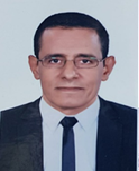
رضا عبد المنصف إبراهيم
أستاذ دكتور في الأحياء، جامعة كفر الشيخ، مصر
https://orcid.org/0000-0001-6472-5666
المحرر
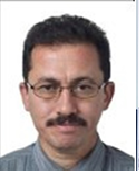
موسى عفيف سعيد
أستاذ دكتور في الكيمياء، كلية العلوم، الجامعة الإسلامية بالمدينة المنورة
https://orcid.org/0000-0003-3073-5449
المحرر

فضل نور
أستاذ دكتور في الحاسب بالجامعة الإسلامية بالمدينة المنورة
https://orcid.org/0000-0002-0096-3435
المحرر

باسم راشد العمري
أستاذ مشارك، الهندسة الكهربائية، جامعة الطايف، السعودية
https://orcid.org/0000-0002-8667-0042
المحرر
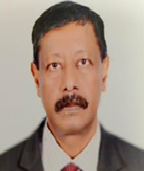
شمس الدين
أستاذ دكتور في الهندسة الصناعية، كلية الحاسب و نظم المعلومات، الجامعة الإسلامية بالمدينة المنورة
المحرر
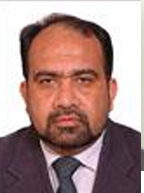
عبد القادر بهاتي
أستاذ دكتور في الهندسة المدنية، كلية الهندسة، الجامعة الإسلامية بالمدينة المنورة
https://orcid.org/0000-0001-5433-7803
المحرر

سعد طلال الحربي
أستاذ دكتور في علوم الحاسب، جامعة طيبة
https://orcid.org/0000-0003-0913-8631
المحرر

يازيد السعوي
أستاذ مشارك في الحاسب و نظم المعلومات، الجامعة الإسلامية بالمدينة المنورة
https://orcid.org/0000-0001-5031-3388
الهيئة الاستشارية للمجلة
المحرر
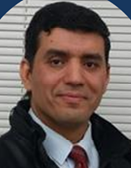
محمد شنيشن
أستاذ دكتور في علم المواد، المعهد الوطني لعلوم المواد- اليابان
https://orcid.org/0000-0003-1592-5877
المحرر
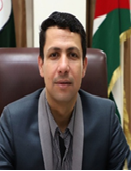
عبد الكريم ناصر العمري
أستاذ الرياضيات، جامعة اليرموك، الأردن
https://orcid.org/0000-0001-5374-0916
المحرر

José Campos E Matos
أستاذ مشارك، قسم الهندسة المدنية، جامعة مينهو، البرتغال
https://orcid.org/0000-0002-1536-2149
المحرر

حسن الجابولي
أستاذ مشارك، حاسب بنيو جرسي، الولايات النتحدة الأمريكية
https://orcid.org/ orcid.org 0000-0002-4027-4351
المحرر
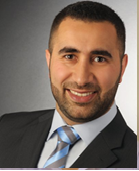
مروان حسني
أستاذ مشارك، جامعة هيدوفن للتكنولوجيا، هولندا
https://orcid.org/ orcid.org/ 0000-0002-4027-4351
المحرر

طارق محمود عمارة
أستاذ مشارك في الرياضيات، الإحصاء التطبيقي، كلية التجارة، جامعة كفر الشيخ، مصر
https://orcid.org/0000-0003-3674-1743
الموظفون
عضو

أحمد زياد
مساعد محرر
عضو

عبد الرحمن سعيد
مساعد محرر